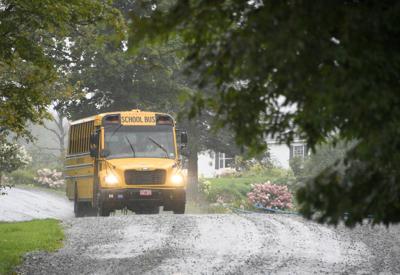The heart of effective governance lies in the intricate task of problem-solving, an inherent aspect of policymaking, legislating, and governing in our democratic society. Regardless of our roles — whether on school boards, in the Legislature, or as the elected governor — it is imperative to address issues in harmony with the majority perspectives of our constituents.
Diverse values come into play in the realm of problem-solving; some officials prefer minimal intervention, others advocate for fiscal restraint, and some emphasize comprehensive solutions. While disagreements may arise regarding the existence or nature of a problem and the inconvenience of proposed solutions, consensus on the problem itself is the catalyst for progress. The more diverse values engaged in problem-solving, the higher the likelihood of reaching a successful resolution.
On Dec. 1, the Vermont Tax Commissioner projected a substantial increase in property taxes for the upcoming fiscal year, indicating expectations that are based on Vermont voters’ likely approval of school budgets and proposals from the Legislature and governor. The pandemic spurred financial needs in schools due to virtual learning, health and safety repairs, and heightened mental health requirements for students, staff and administrators. Federal funding, previously available, is diminishing, compounding the challenges now pressing on school budgets.
During the 2022 legislative session, Vermont also made substantial changes to the calculation of education property taxes by altering how student counts are counted, referred to as pupil weights. This adjustment was necessary to address outdated weights that had created equity issues, particularly for low-income and ESL students.
Vermont’s school finance system is complex and interconnected. The pupil weight changes mean that, in the next fiscal year, some districts will increase school budgets and see tax rate reductions, while others might experience a tax rate hike even with flat spending.
In addition, it has been nearly 16 years since Vermont provided school construction aid. We have also seen declining enrollments, district consolidations and concerns about contaminants in school buildings. Some districts, lacking state and federal program funds, have independently managed repairs and maintenance, contributing to the burden on property taxes.
Huge cost increases tied to inflation, volatile fossil fuel markets, and staffing costs due to Vermont’s labor shortage, have further added to the financial strain. The real estate boom has also caused grand list values in many towns to rise significantly, disrupting the common level of appraisal and triggering a tax penalty until reappraisal, which is a logistical challenge for numerous towns due to shortages in technical expertise.
In this challenging scenario, what is needed is leadership. At the highest government ranks, this involves acknowledging the irreplaceable value of a high-quality, public education system to our children, communities, recruitment efforts, and to Vermont’s future. It requires a fully staffed Agency of Education with an innovative educational leader at the helm developing scalable solutions for addressing factors beyond local control which affect our kids, schools and taxpayers. New superintendents and administrators need technical support to navigate the end of pandemic spending and to address inflation and health care increases. Schools experiencing significant pupil weighting changes require technical assistance to make judicious decisions.
The governor’s call for school boards to contain spending is appreciated, but transparent, forward-facing leadership must also involve providing Vermonters with details about the state and national level pressures deeply impacting local school boards as they strive to balance budgets and deliver a high-quality education.
Government’s purpose is not to dismantle itself, but to solve problems. Vermont’s challenges encompass not only affordability but also safety, access, health, equity, demographics, infrastructure and climate change. Addressing these multifaceted issues requires informed, strategic leadership and collaborative efforts at all levels of governance. Shorthand talking points to our constituents just won’t do. The intricacies of these challenges demand a comprehensive and detailed approach, one that better captures what good governance is all about.
Laura Sibilia is Vermont state representative for Dover, Readsboro, Searsburg, Somerset, Stamford, Wardsboro, Whitingham and lives in West Dover.


